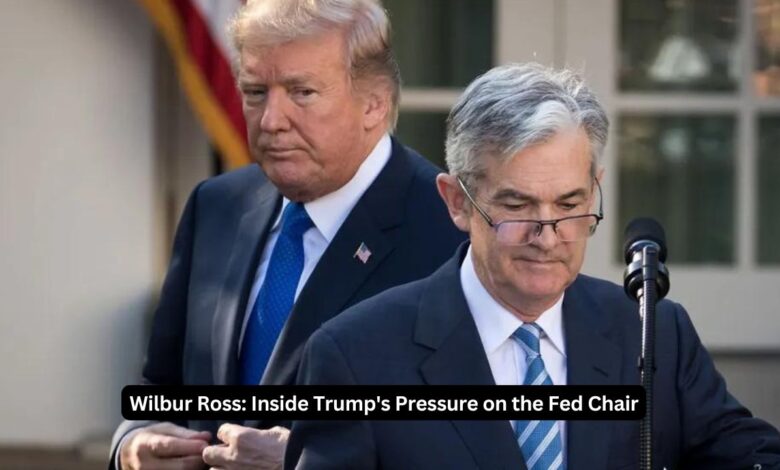Wilbur Ross: Inside Trump’s Pressure on the Fed Chair

Recent revelations have highlighted a significant event involving former President Donald Trump and his administration’s efforts to influence the Federal Reserve’s monetary policy. According to a report by Forbes, Trump instructed his Secretary of Commerce, Wilbur Ross, to exert pressure on Fed Chair Jerome Powell to lower interest rates. This episode underscores the intense political maneuvering that characterized Trump’s presidency and its impact on U.S. financial policy. Here’s a detailed examination of what transpired and its broader implications.
The Pressure on the Federal Reserve
In a move reflecting the often contentious relationship between the White House and the Federal Reserve, Donald Trump allegedly directed Wilbur Ross to influence Jerome Powell, the Chair of the Federal Reserve. Trump’s motivation was reportedly driven by a desire to push for lower interest rates, which he believed would stimulate economic growth and potentially aid in his re-election efforts.
The Federal Reserve, an independent body responsible for setting monetary policy, operates without direct interference from the executive branch. Its decisions on interest rates are based on economic data and projections, aiming to maintain stable prices and maximum employment. However, Trump’s administration’s attempts to influence these decisions highlight a broader trend of political pressure on economic institutions during his presidency.
Wilbur Ross’s Role
Wilbur Ross, a seasoned businessman and a key figure in Trump’s cabinet, played a pivotal role in the administration’s economic strategy. Known for shaping trade policies and economic initiatives, Ross’s involvement in pressuring the Fed Chair illustrates the administration’s aggressive approach to economic policy.
Ross’s reported communications with Jerome Powell were aimed at persuading him to consider rate cuts, aligning with Trump’s broader strategy to stimulate economic growth through monetary policy adjustments. The involvement of Ross and other officials in pressuring the Fed underscores the complexities of managing economic policy amidst political pressures.
Implications for Federal Reserve Independence
The attempt to influence the Federal Reserve’s decisions raises critical concerns about the independence of the institution. The Fed’s autonomy is essential for maintaining trust in its ability to make objective decisions based on economic conditions rather than political influence. Efforts to sway its policy decisions can undermine its credibility and effectiveness.
This incident also highlights the challenges faced by central banks in navigating political landscapes while striving to fulfill their mandates. The Federal Reserve’s role in setting interest rates and managing monetary policy is crucial for economic stability, and maintaining its independence is vital to its success.
Broader Context and Impact
The pressure on the Federal Reserve is part of a larger pattern of economic and political interactions that characterized Trump’s presidency. His administration’s focus on aggressive economic policies and direct interventions reflects a broader approach to governance that sought to influence key institutions and shape economic outcomes.
For Trump, advocating for lower interest rates was seen as a strategy to drive economic growth and bolster his political standing. However, such strategies can have mixed results and may impact long-term economic stability. The broader implications of this episode highlight the complexities of balancing economic policy with political objectives.
Conclusion: A Revealing Episode
The report of Trump directing Wilbur Ross to pressure Fed Chair Jerome Powell is a revealing example of the political dynamics during his presidency. It illustrates the intersection of political influence and economic policy and raises important questions about the independence of key financial institutions.
As this story continues to unfold, it provides valuable insights into the challenges faced by the Federal Reserve and the broader economic implications of political pressure. This episode serves as a reminder of the delicate balance required in managing economic policy amidst political considerations and the importance of preserving institutional independence.




